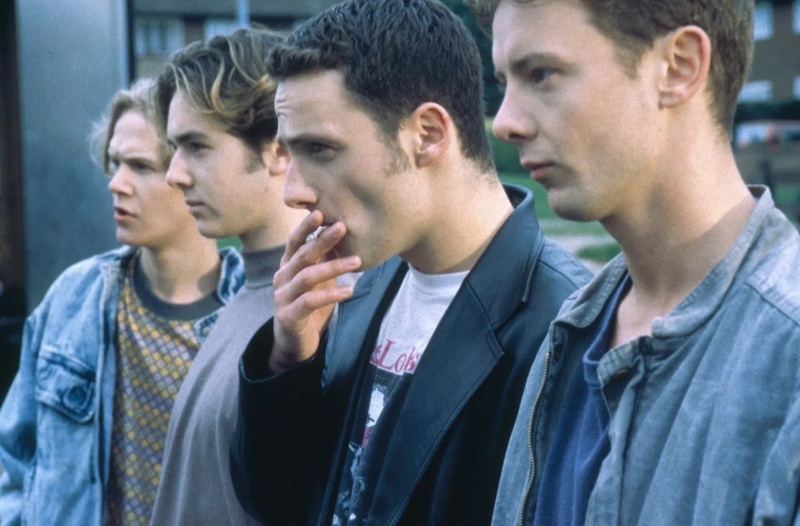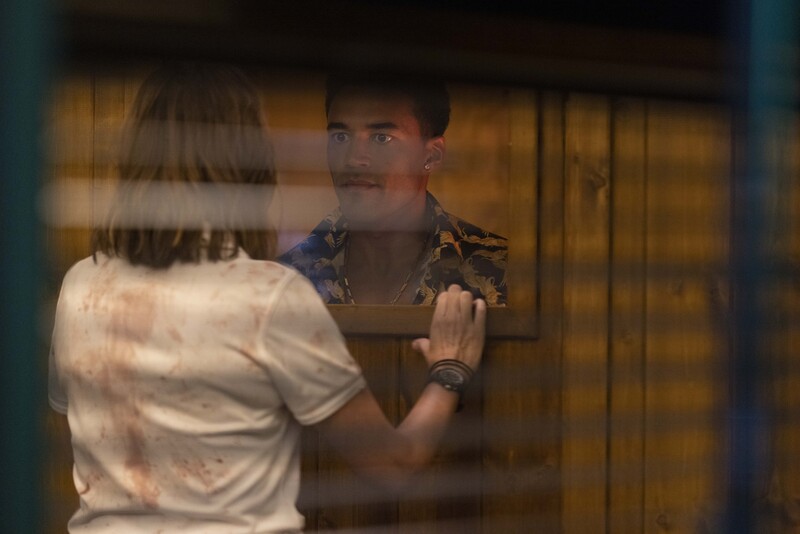
Harmony Fades As Identity Finds Its Voice
MOVIE REVIEW
Little Trouble Girls (Kaj ti je deklica)
–
Genre: Drama, Coming-of-Age
Year Released: 2025
Runtime: 1h 29m
Director(s): Urška Djukić
Writer(s): Urška Djukić, Marina Gumzi, Maria Bohr
Cast: Jara Sofija Ostan, Mina Švajger, Saša Tabaković, Nataša Burger
Where to Watch: shown at the 2025 Berlinale and Tribeca Film Festivals, released by Kino Lorber on December 5, 2025, in the US
RAVING REVIEW: In LITTLE TROUBLE GIRLS, debut filmmaker Urška Djukić transforms a seemingly simple story of adolescence into something layered, lyrical, and quietly confrontational. Set within the walls of a Catholic school and its devout choir, the film doesn’t settle for a tale of rebellion; instead, it examines what happens when self-discovery collides with faith — when the body becomes its own kind of confessional. It’s both intimate and unnerving, told through delicate gestures and unspoken questions that linger long after the credits fade.
The film follows sixteen-year-old Lucija (Jara Sofija Ostan), an introverted girl encouraged by her mother to join her school’s choir. There, she meets Ana-Marija (Mina Švajger), an older student whose confidence draws Lucija in like light through stained glass. The setting is serene — the convent, the rituals of song, the harmony of voices — yet beneath that surface lies a current of unease. Lucija’s awakening, both sexual and spiritual, disrupts the order around her, as she begins to feel desire and doubt in equal measure.
Djukić’s direction resists judgment, choosing observation over provocation. Her camera lingers on faces, on hands brushing fabric, on moments of tension that never explode but instead lie beneath the surface. The film doesn’t scream about its themes — it whispers them. The result is a work that feels as tactile as it does emotional, capturing not just what Lucija experiences, but also how it feels to experience it: the weight of expectation, the thrill of transgression, and the ache of uncertainty.
Ostan delivers a performance that’s remarkably intuitive for someone so young. Lucija’s hesitance, curiosity, and quiet bursts of defiance feel lived-in rather than performed. Her chemistry with Švajger’s Ana-Marija is equally crucial — their connection dances between affection, jealousy, and something unspoken that neither of them fully understands. Švajger plays Ana-Marija with an edge of dominance, but not cruelty; she’s someone who has already learned to manipulate the moral gray areas of adolescence, even if she doesn’t yet grasp the consequences.
Their dynamic plays out against the strict structure of the choir, led by Saša Tabaković’s stern Choirmaster, whose control over the girls’ voices mirrors the Church’s control over their identities. Every rule, every hymn, becomes a symbol of containment. And yet, Djukić finds moments of beauty in this repression — light through cloister windows, the warmth of shared laughter, the sacredness of song itself. It’s a film that recognizes both the comfort and suffocation of belonging.
Sound plays an essential role. The choir’s voices, layered and ethereal, often blur with Lucija’s breathing or the rustle of her surroundings, creating an atmosphere that feels simultaneously holy and human. The film’s sound design allows the audience to feel her spiritual disorientation, where hymns, whispers, and internal doubt become indistinguishable. The effect is hauntingly immersive, as if we’re caught in her headspace, hearing every contradiction echo at once.
LITTLE TROUBLE GIRLS occupies a rare space between coming-of-age story and spiritual parable. Djukić explores the paradox of religious education: a place meant to shape morality that ends up amplifying curiosity. The film’s tension doesn’t rely on shock or controversy; it emerges naturally from the clash between innocence and awareness. When Lucija’s curiosity leads to an encounter with a construction worker at the convent, the experience becomes a prism — not an act of corruption, but a confused, human moment that forces her to confront her faith and her body simultaneously.
For all its stillness, LITTLE TROUBLE GIRLS pulses with emotion. Beneath the formal compositions and careful pacing is a deep empathy for young women forced to reconcile expectation with reality. Djukić’s focus on corporeality — close-ups of faces, skin, gestures — gives voice to what religion often suppresses. She never condemns faith; she just asks whether belief can coexist with self-knowledge. It’s a daring question, especially in the context of Slovenian cinema, and one that has earned the film international acclaim.
There’s also a subtle yet unmistakable feminist undercurrent that runs through the film. Djukić treats female friendship as a battlefield of affection, envy, and survival. Ana-Marija’s influence over Lucija mirrors institutional control; both are forces that demand conformity, and both crumble when challenged. When Lucija finally finds her own voice — literally and metaphorically — it’s not through rebellion, but through presence. She stops trying to blend in and starts simply existing. That quiet act of self-acceptance lands harder than any sermon could.
LITTLE TROUBLE GIRLS is less a narrative than a meditation. Its power lies in repetition and restraint — the way emotions swell without ever breaking. That’s precisely what makes it linger. Like a hymn sung in a language you don’t understand, it moves you not through clarity, but through feeling. Poetic, introspective, and gracefully provocative, LITTLE TROUBLE GIRLS redefines the coming-of-age story through faith and self-discovery. Urška Djukić delivers one of the most visually and emotionally assured debuts of the year. This film understands how growing up can feel both divine and forbidden, all at once.
Please visit https://linktr.ee/overlyhonestr for more reviews.
You can follow me on Letterboxd, Instagram, Twitter, and YouTube. My social media accounts can also be found on most platforms by searching for 'Overly Honest Reviews'.
I’m always happy to hear from my readers; please don't hesitate to say hello or send me any questions about movies.
[photo courtesy of KINO LORBER]
DISCLAIMER:
At Overly Honest Movie Reviews, we value honesty and transparency. Occasionally, we receive complimentary items for review, including DVDs, Blu-rays, CDs, Vinyl Records, Books, and more. We assure you that these arrangements do not influence our reviews, as we are committed to providing unbiased and sincere evaluations. We aim to help you make informed entertainment choices regardless of our relationship with distributors or producers.
Amazon Affiliate Links:
Additionally, this site contains Amazon affiliate links. If you purchase through these links, we may receive a commission. This affiliate arrangement does not affect our commitment to honest reviews and helps support our site. We appreciate your trust and support in navigating these links.



Average Rating